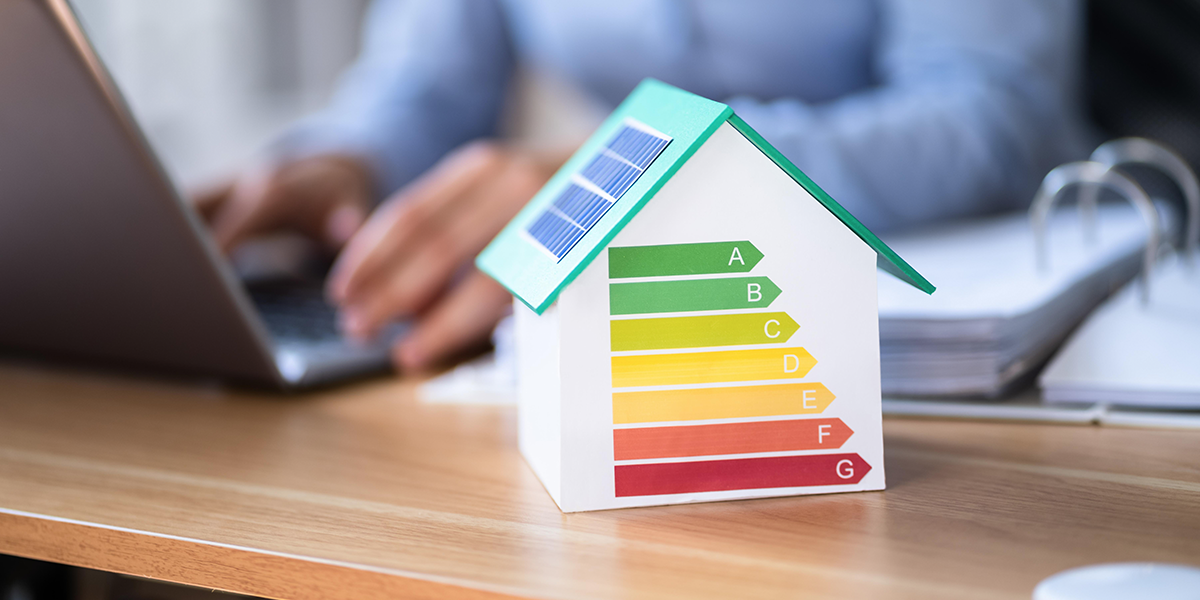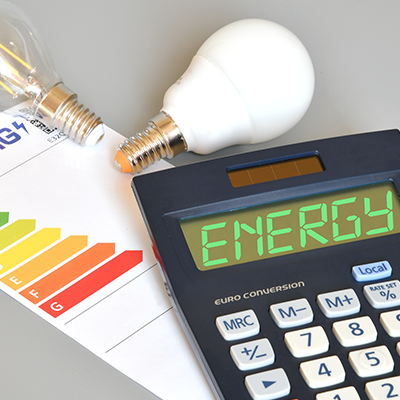If you’re wondering how to improve your EPC rating before listing your property on the market, you’re not alone. When selling or renting out a home in the UK, one of the most important documents you’ll need is an Energy Performance Certificate (EPC). This certificate shows how energy efficient your property is, rated on a scale from A (most efficient) to G (least efficient). A better rating not only helps attract buyers and tenants but can also improve the property’s value and marketability. If your EPC rating is low, there are practical steps you can take to boost it before putting the property on the market.
An EPC rating gives potential buyers or tenants an indication of what energy bills might look like and how environmentally friendly the property is. Since April 2020, all rental properties in England and Wales must have a rating of at least E. There’s increasing pressure from the government to move towards C or above in future years, so upgrading your rating now can help future-proof your investment.
Improving your EPC rating isn’t just about ticking boxes. It demonstrates your commitment to energy efficiency and can make your property stand out in a competitive market. For landlords, it’s also key to meet legal requirements to avoid fines.
As energy prices continue to rise, having a more efficient home can be a major selling point. Properties with strong EPC ratings are often more appealing to eco-conscious buyers and renters who are looking to reduce their long-term living costs. A higher rating could even influence mortgage lenders, who increasingly consider a property’s energy profile when offering green finance products.
The first step in improving your EPC rating is to understand where you currently stand. An EPC report will highlight specific areas of weakness and make recommendations for improvement. This includes suggestions such as upgrading insulation, replacing outdated heating systems, or installing low-energy lighting.
If you’ve recently made improvements that aren’t reflected in your existing EPC, it’s worth commissioning a new one. You can learn more about what’s involved on our EPC Certificates page.
Poor insulation is one of the biggest contributors to low energy performance. Loft insulation is usually the most cost-effective upgrade. If your property has cavity walls, cavity wall insulation can also offer a significant improvement. Older properties may benefit from solid wall insulation. Floor insulation can also play a role, especially in homes with suspended timber floors.
If your property still relies on an outdated boiler or electric heaters, consider upgrading to a modern condensing boiler or installing programmable heating controls. These changes can have a noticeable impact on your EPC score. In some cases, switching to a heat pump or incorporating underfloor heating can provide a further boost.
Replacing halogen or incandescent bulbs with LED lighting is a simple and affordable way to improve your EPC rating. Most EPC assessors take lighting into account when calculating the final score. While this may seem like a small change, it contributes to overall energy savings and sends a positive signal to assessors.
Upgrading to double or triple glazing can help retain heat and reduce energy loss. This is especially valuable in older properties where single glazing may still be in place. If replacement is not an option, adding secondary glazing or using draught-proofing measures can still have a noticeable impact.
Fitting solar panels or other renewable technologies won’t suit every property, but where feasible, these systems can drastically improve your EPC score. They also demonstrate a long-term commitment to sustainability. Other options include solar water heating or air-source heat pumps.
Installing smart thermostats, zoned heating controls, or energy monitoring systems can improve efficiency and appeal to modern buyers and tenants. While these may not always be directly reflected in your EPC rating, they contribute to a better overall energy profile. When combined with physical upgrades, smart technology adds another layer of control and optimisation.
Ideally, make improvements before your EPC expires or before you list the property. EPCs are valid for 10 years, but if you’ve carried out upgrades, a new assessment may yield a better rating and help you stay compliant with future regulations.
In the future, EPC regulations are likely to tighten. The government has already signalled its intention to require a minimum EPC rating of C for new tenancies by 2028. Staying ahead of these changes now can save stress and expense later.
At SAP Assessment, we offer EPC assessments and guidance on how to improve your property’s energy rating. Whether you’re preparing to sell or rent, we can help identify the most efficient and cost-effective ways to boost your score.
If you’re unsure where to begin, our assessors can review your current EPC and explain which upgrades will deliver the best return on investment. We also provide SAP assessments for new builds and extensions, so we’re equipped to advise on projects at any stage.
Improving your EPC rating doesn’t have to be complicated. With the right advice and a few targeted upgrades, you can increase your score, enhance your property’s value, and meet legal standards with confidence.
To learn more, visit our EPC Certificates page or explore Our Services. If you’re ready to take action, Contact Us today and speak with one of our expert assessors.

Understanding EPC Certificates When Selling a Home If you’re planning to sell a property in the UK, one of the first things you’ll need to...

Understanding EPC Timelines in the UK An Energy Performance Certificate (EPC) is a legal requirement when selling or renting a property in the UK. It...